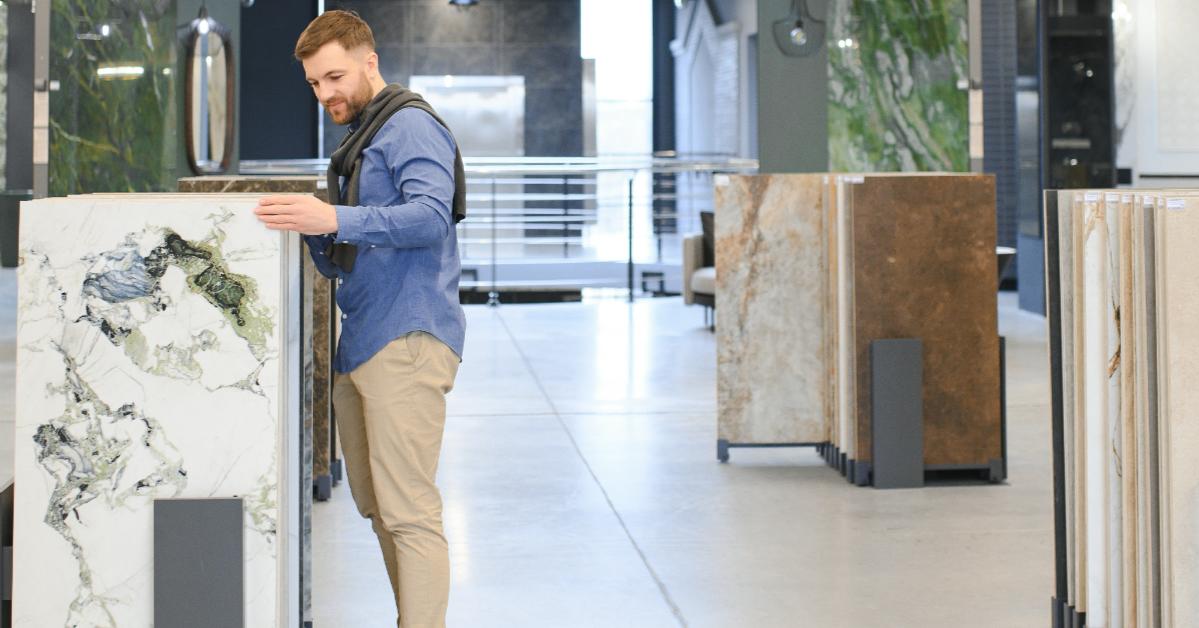It can be difficult to choose the ideal kitchen countertop because there are so many options available, including laminate, stone, wood, and even metal. It gets even more difficult to choose the ideal countertop when you consider the significant investment you’re making.
For instance, imagine yourself trying to choose between quartz and quartzite. Many people frequently mix up the two kinds of materials because they are unaware of their differences. Even though they are frequently mistaken for one another, they are both very popular options for kitchen countertops and could be exactly what you need to finish off your house. So, how are you going to choose?
To assist you in selecting the best surface for your ideal kitchen and shed some light on the quartz countertops vs. quartzite countertops question, we have listed all the key distinctions between the two substances.
What Is Quartz?
When researching quartz countertops, buyers frequently become confused by the seemingly incompatible terms “natural” and “manufactured.” In actuality, quartz fits both of these descriptions.
Quartz belongs to a separate hybrid category when it comes to countertops. Although quartz is a mineral in and of itself, quartz countertops aren’t regarded as natural stone like marble or granite. Quartz is created by combining synthetic materials (particles, resins, and stone chips) with quartzite stone. Unlike natural quartz, marble, or granite, which are mined, quartz countertops are made using this mixture process.
It’s technically an engineered stone countertop, which means that although 93% of the surface is made of pure quartz, the remaining 7% is artificial.
What Is Quartzite?
The main distinction between the two is that quartzite is a hard stone countertop that’s naturally occurring, as opposed to engineered quartz. Nevertheless, quartz actually makes up nearly all of the quartzite.
In essence, quartzite is a naturally occurring metamorphic rock formed by the fusion of sandstone subjected to extreme heat and pressure with quartz-rich chert. Some people prefer quartzite countertops to marble because of their high sheen or glassy appearance.

Quartz Countertops vs. Quartzite Countertops – 3 Differences
Despite the clear distinctions between quartz and quartzite, many people use the terms interchangeably. Actually, there are a number of significant differences between the two materials that you should be aware of before installing your countertops. That’s why we’ll be comparing them below.
Reading this comparison should help resolve the quartz countertops vs. quartzite countertops question so you can make an informed decision and understand which material is best for your home.
The most typical distinctions are as follows:
Difference by Appearance
In terms of appearance, there are countless style options thanks to quartz’s engineered fabrication process. Manufacturers are able to create a wide range of aesthetics because they combine quartz aggregate with additives like pigment and resins in the factory. That’s why quartz essentially comes in a vast range of hues, designs, and textures.
Quartzite’s aesthetic options, however, are a little more constrained than those of quartz countertops, which thrive in terms of adaptable design options. They cannot be altered in the same way because they are natural stones. In general, they are available in a variety of light grey and white hues.
This is not to say that all quartzites are the same, though, as the natural veining in quartz is eliminated during the manufacturing process. In quartzite countertops, this veining may show up as delicate, subtle patterning or as broad, dark streaks.
Difference by Durability
Because quartz is non-porous, it has a distinct advantage over natural stone countertops. The quartz countertops’ 7% resin content serves as an efficient sealant. This eliminates the need to regularly reseal your quartz surface, which is an extra expense necessary for countertops made of natural stone.
Furthermore, quartz countertops are incredibly stain-resistant due to their non-porous nature. There’s no need to be concerned about the surface soaking up a spill of red wine or a mess from cooking. Additionally, quartz doesn’t etch like marble or other natural stones do.
Being non-porous also has the advantage of making it more difficult for bacteria and germs to infiltrate the countertop. Because quartz is antimicrobial, maintaining a hygienic kitchen is made even simpler.
On the other hand, quartz’s lack of heat resistance is its largest maintenance-related disadvantage. A hot pan or pot cannot be placed directly on a quartz surface without leaving behind irreversible scorch marks.
Quartzite countertops generally share many of the same characteristics as quartz. They resist etching, are incredibly strong and hard, and are resistant to stains. Nevertheless, quartzite countertops aren’t all the same. The porosity of quartzite can vary due to its natural formation process. In general, there are two types of quartzite countertops: porous and nonporous.
It all depends on the amount of pressure that each quartzite has given way to. High-pressure quartzite will have minerals that are firmly bonded together and are nonporous. Because they are more porous, those that have been subjected to less extreme pressure would benefit from sealing for extra security.

Difference by Cost
It’s not always easy to figure out how much quartz or any other stone countertop will cost. The price of natural materials can vary from month to month or from supplier to supplier due to a number of different factors.
The location of the quarry, the cost of shipping, the manufacturer, and supply and demand can all affect quartz countertop prices. Nevertheless, typically a quartz countertop costs between $80-$180 per square foot, without the installation costs.
This could end up costing anywhere between $2,000 and $10,000, depending on the quality of quartz you choose and the size of your countertop. The entire cost may surpass $20,000 if you plan to furnish the kitchen on several surfaces, including wall backsplashes.
In general, quartzite countertops should cost between $80 and $200 per square foot. Naturally, the cost will vary greatly based on the slab you choose and the supplier you buy it from, just like with quartz.
White quartzites, which can be found at most countertop suppliers, cost between $80 and $120 per square foot. Quartzite countertops that are more exotic or unique can cost $200 or more per square foot.
How to Choose the Best Countertop?
It’s ultimately up to you to decide whether to get a quartz or quartzite countertop. Quartzite might be the best option if you want a natural look and have budgeted for remodeling your house.
Quartz will be a better option if you’re on a tighter budget, and want a distinctive color and an easy-to-maintain countertop. Or you can go with quartz if you simply want to be more ecologically conscious as well.
